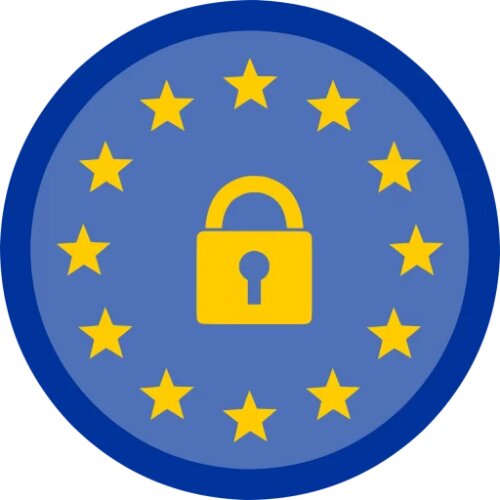Best Arrests & Searches Lawyers in Vilnius
Share your needs with us, get contacted by law firms.
Free. Takes 2 min.
List of the best lawyers in Vilnius, Republic of Lithuania
About Arrests & Searches Law in Vilnius, Republic of Lithuania
In Vilnius, the capital of the Republic of Lithuania, arrests and searches are primarily governed by the country's Criminal Code and Code of Criminal Procedure. The legal framework ensures that the enforcement of law and order respects individuals' rights while maintaining public safety. Law enforcement officers must follow strict protocols when conducting arrests and searches to protect the legal rights of individuals. These legal procedures are designed to balance the need to investigate crimes with basic human rights and freedoms.
Why You May Need a Lawyer
Legal assistance is crucial if you are involved in an arrest or search, or if you face potential legal issues related to these actions. Here are some situations where a lawyer might be necessary:
- If you've been arrested and require representation to ensure your rights are protected during questioning and legal proceedings.
- If your personal property or residence has been searched, and you wish to verify the legality of the search.
- If you need guidance on how to respond to a warrant or subpoena.
- If you believe your rights were violated during an arrest or search.
- If you are facing charges as a result of an arrest and need defense in court.
Local Laws Overview
The legal process concerning arrests and searches in Vilnius falls under several key rules and regulations:
- Warrants: In most cases, law enforcement must obtain a warrant to conduct a search unless urgent circumstances exist.
- Procedure: Officers must identify themselves and explain the purpose of an arrest or search.
- Detainment: A person detained or arrested must be informed of the reasons and their rights, including the right to legal counsel.
- Evidence: Any evidence obtained illegally or without the proper procedure may be inadmissible in court.
- Rights: Individuals have the right to challenge unlawful arrests or searches through legal means.
Frequently Asked Questions
What rights do I have if I’m arrested?
If you're arrested in Vilnius, you have the right to be informed of the charges against you, to remain silent, and to have access to a lawyer.
Can police search my home without a warrant?
Generally, law enforcement needs a warrant to search your home. Exceptions include situations where immediate action is necessary, such as preventing the destruction of evidence.
What should I do if I am stopped by the police?
Stay calm and cooperative. You have the right to ask if you are being detained or free to go. If detained, ask for the reason and request legal counsel.
How long can I be held in custody without charge?
In Lithuania, you can generally be held for up to 48 hours without charge. After this period, you must be released or formally charged.
Can I refuse a search of my personal belongings?
You can refuse a search, but this may lead to law enforcement obtaining a warrant, or they may proceed without one if justified by circumstances.
What should I do if I feel my arrest was unlawful?
Document all details and contact a lawyer immediately to explore legal challenges to the arrest.
Are police allowed to use force during an arrest?
Force must be reasonable and proportional to the situation. Excessive force can be challenged legally.
What happens after I’m arrested?
You will be taken to a police station for processing, which includes recording your personal details, and possibly interrogation. Legal representation is advised during this time.
Do I have to answer questions during a search or arrest?
You have the right to remain silent and should exercise this right until you can discuss your situation with a legal professional.
What types of evidence are admissible in court?
Only legally obtained evidence is admissible. Evidence gathered without proper procedure or through violation of rights can be challenged in court.
Additional Resources
If you need further assistance with issues related to arrests and searches, consider reaching out to these resources:
- Lithuanian Bar Association: A professional body that can help you find a certified lawyer.
- Lithuania’s Ministry of Justice: Provides information and resources about legal rights in Lithuania.
- Vilnius Police Headquarters: For questions regarding police procedures and your rights.
- Legal Aid Services: Offers free or low-cost legal advice for those who qualify.
Next Steps
Should you require legal assistance regarding arrests and searches, consider the following steps:
- Contact a lawyer experienced in criminal law to discuss your situation.
- Gather any related documentation and evidence, such as warrants, notices, or recordings.
- Clarify your rights and potential outcomes with your lawyer.
- Follow legal advice carefully and abstain from discussing your case with unauthorized parties.
Engaging with knowledgeable legal professionals is essential to ensuring that your rights are respected and that you navigate the legal system effectively.
Lawzana helps you find the best lawyers and law firms in Vilnius through a curated and pre-screened list of qualified legal professionals. Our platform offers rankings and detailed profiles of attorneys and law firms, allowing you to compare based on practice areas, including Arrests & Searches, experience, and client feedback.
Each profile includes a description of the firm's areas of practice, client reviews, team members and partners, year of establishment, spoken languages, office locations, contact information, social media presence, and any published articles or resources. Most firms on our platform speak English and are experienced in both local and international legal matters.
Get a quote from top-rated law firms in Vilnius, Republic of Lithuania — quickly, securely, and without unnecessary hassle.
Disclaimer:
The information provided on this page is for general informational purposes only and does not constitute legal advice. While we strive to ensure the accuracy and relevance of the content, legal information may change over time, and interpretations of the law can vary. You should always consult with a qualified legal professional for advice specific to your situation.
We disclaim all liability for actions taken or not taken based on the content of this page. If you believe any information is incorrect or outdated, please contact us, and we will review and update it where appropriate.















